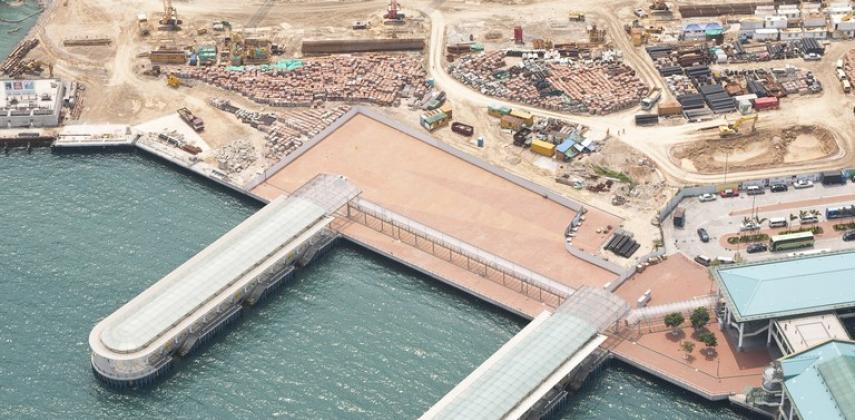In recent months, the Civil Engineering and Development Department (CEDD) has embarked on a recruitment drive for professional and technical staff to meet the demands of infrastructure projects. The exercise focuses on hiring civil engineers to fill some 30 vacancies in the Works Department for the coming year. Technical officers, field officers and landscape architects will also be recruited.
The CEDD recruits engineers for a range of government departments and its own. It employs more than 1,700 staff, of whom about two-thirds are professional and technical personnel.
"With a lot of ongoing and in-the-pipeline mega infrastructure projects, the private sector is also hunting for the best civil and geotechnical engineers. However, we believe that the unique and diverse nature of work in the government gives us an edge in recruitment," says CEDD spokesman Robert Tsoi.
The range of CEDD infrastructure projects is indeed vast, including the development of Kai Tak, the Tseung Kwan O-Lam Tin Tunnel, and the Cross Bay Link, cycle tracks in the New Territories, the widening of the Tsuen Wan bypass, a new boundary control point at Liantang/Heung Yuen Wai, and new development areas in Kwu Tung north, Fanling north and Ping Che/Ta Kwu Ling.
"The postings will provide ample opportunities for engineers to work on a variety of local projects, and experience the challenges of delivering public works projects from different roles," Tsoi says.
In a bid to attract the industry's best and brightest, remuneration packages offered to engineers are comparable to those of other professionals in the government.
Civil engineers will primarily be involved in the planning, design, implementation and maintenance of works, and the administration of projects in areas such as land and infrastructure, water supply, transport and port facilities, and drainage and sewerage systems.
Long-term career prospects are also promising as the government offers a clear pathway to those demonstrating talent, commitment, leadership and meritorious performance, Tsoi says. New engineering recruits, who kick-off their careers at the most junior level, will find themselves at the doorway of a structured organisation which takes people development seriously. Engineers can work upwards through a series of promotion opportunities, that take the form of positions including senior engineer, chief engineer, government engineer, principal government engineer and director, before reaching a permanent secretary role.
Given the evolving nature of engineering work in the past decade, the government is keen to recruit experienced engineers who also possess soft skill sets, such as good communications, problem solving and wide insights into community needs, due to the extensive impact infrastructure projects will have on the public.
"In the implementation of infrastructure projects, our civil engineers consider not only the technical and quality aspects of the projects, but also the public's concerns, environmental concerns, safety and health issues, cultural and heritage aspects," Tsoi says. "We also need to engage the public, work in collaboration with people from different disciplines and interests, and communicate with them to achieve smooth planning and implementation of the projects."
The CEDD is focused on recruiting the best engineers the industry has to offer. Prospective candidates need to have at least a professional qualification from a recognised institution. For example, they could be a corporate member of the Hong Kong Institution of Engineers, or its equivalent.
Those who join the department will find themselves at the heart of an organisation that is committed to engineering the development of Hong Kong.
Aside from maintaining a high standard of engineering excellence, the department also strives to create a safe, green and sustainable environment. It partners with the community in infrastructure development, and is dedicated to building a caring and motivated work environment for all employees.


